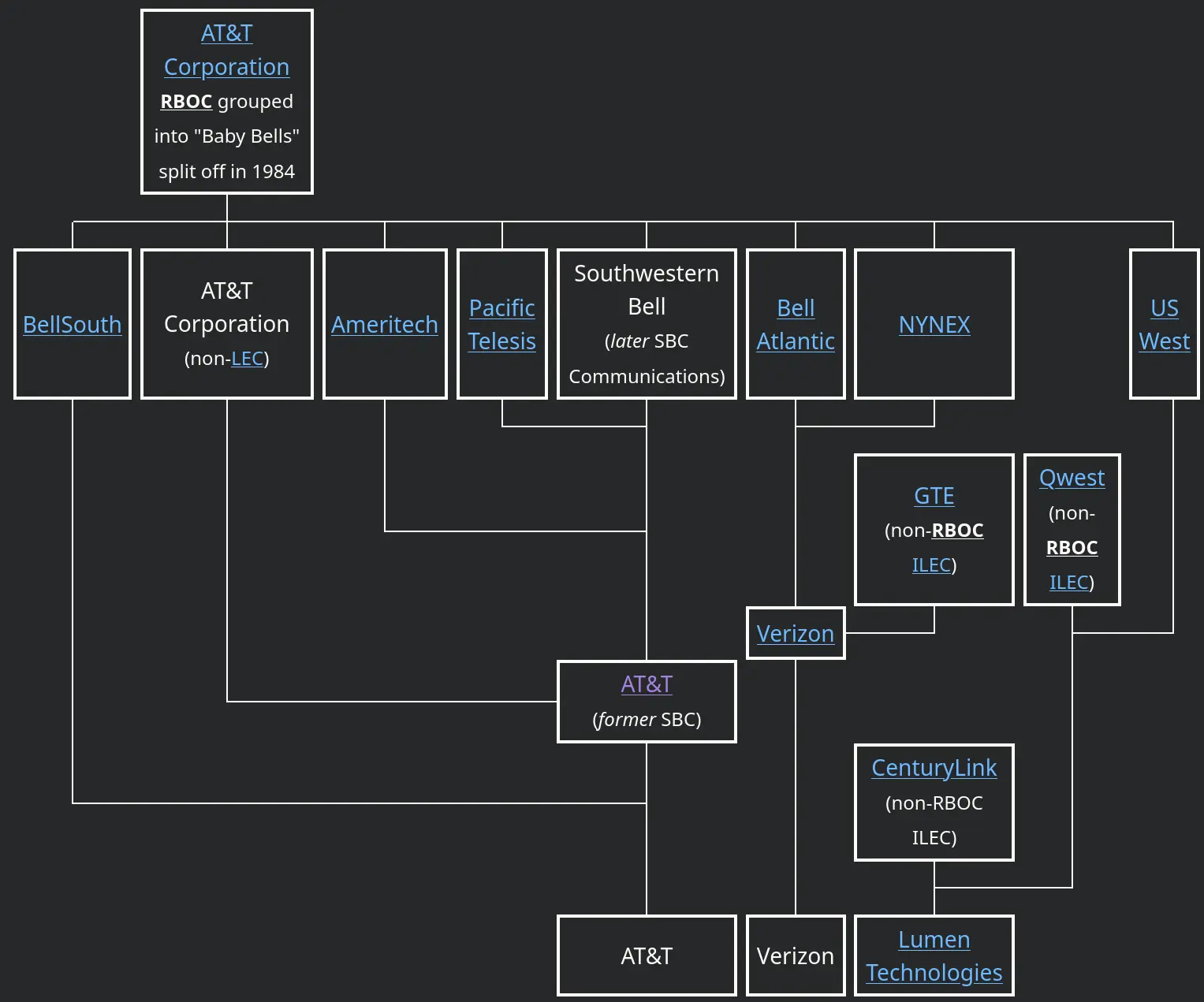baltakatei
/ˈbɑːltəkʊteɪ/. Knows some chemistry and piping stuff. TeXmacs user.
Website: reboil.com
Mastodon: baltakatei@twit.social
- 113 Posts
- 123 Comments
 2·3 months ago
2·3 months agoYo estaba pensando por qué no había “Share full article links” en los artículos. Pensaba que era un síntoma de que mi cuenta estaba registrada en los EE.UU.

 10·3 months ago
10·3 months agoOr authors could preëmptively declare their works to be in the public domain upon their death.
I wish Creative Commons had a license like that. Something like
CC PDD(Public-Domain-on-Death) which would activate upon the creator’s death, allowing them and publishers to freely monetize their work while they’re alive, but which would release the work into the public domain immediately after.It might even incentivize music and book publishers to get their artists health insurance. 😃
PLATO: An automobile is craft with an internal combustion engine, crankshaft, and wheels.
DIOGENES wheels in a HONDA GX630 PRESSURE WASHER
DIOGENES: Behold! An automobile!
“Create a python script to count the number of
rcharacters are present in the stringstrawberry.”The number of 'r' characters in 'strawberry' is: 2
deleted by creator
 2·3 months ago
2·3 months agoDe nada. Espero que puedan compartir algunos artículos del New York Times acá con los demás.
“That all life beyond this planet never existed, no matter how irrationally improbable that may be.”

 161·3 months ago
161·3 months agodon’t let them slowly re-consolidate in the following 20 years
I too remember how AT&T was broken up only for most of its Baby Bells to remerge back into Ma Bell.

To prevent this for future breakups, I say the content and services sold by big tech should be made competitively compatible and interoperable via nullification of DRM laws; people buy music and movies and cloud storage; let them legally move their purchases to any competitor and big tech companies will break up naturally as local competitors emerge from people who dislike big tech for their own reasons. Monopolies cannot be trusted to lower prices for content and services. Legally nullifying DRM is like the FCC telling customers in 1968 that it was finally okay to ignore the “Bell equipment only” legal warning that had kept them locked into leasing their telephone sets for usurious amounts from AT&T for decades. A few years later, in 1982, AT&T was broken up. AT&T is almost a total monopoly again, but phones remain interoperable.
If tech giants such as Google cannot be broken up, then their services should be required to be compatible and all data exportable to competitors. See the EFFʼs “Competitive Compatibility” concept. Buy a movie off Google’s YouTube but Google misbehaves? It must be exportable to a market competitor that you do support. Don’t like how Google handles your email? You should be able to switch your email address to a competitor just like you can change phone companies without losing your phone number.
Basically, if the US Federal government cannot discipline monopolies by breaking them up directly, they should break up the moats and walled gardens the monopolies built to keep customers locked in to maintain their monopolies. See Chokepoint Capitalism by Rebecca Giblin and Cory Doctorow.
Based on my cheatsheet, GNU Coreutils, sed, awk, ImageMagick, exiftool, jdupes, rsync, jq, par2, parallel, tar and xz utils are examples of commands that I frequently use but whose developers I don’t believe receive any significant cashflow despite the huge benefit they provide to software developers. The last one was basically taken over in by a nation-state hacking team until the subtle backdoor for OpenSSH was found in 2024-03 by some Microsoft guy not doing his assigned job.
 3·3 months ago
3·3 months agoI can see why people of the future will look on early 21st century medicine as barely a step above blood-letting.
Can’t wait for the day when Uncle Sam to turns brown.
 1·3 months ago
1·3 months agoHere is some background reading from Chokepoint Capitalism (2022) by Rebecca Giblin and Cory Doctorow. Specifically, it is from “Chapter 3: How News Got Broken”. I recreated the citations in the markdown as links and tool-tips.
spoiler
COOKIE MONSTERS
Ultimately, both Google and Facebook are ad companies, deriving about 80 percent and 98 percent (respectively) of their revenues from advertising. Between them, they control 70 percent of the US ad market, and more than 65 percent in the UK.4 They have sewn up the search and social ad markets in ways that let them extract ever more value—to the cost of the journalists, video makers, musicians, and other creative workers who provide the culture and information to which those ads get attached.
Google’s strategy for locking in suppliers like news publishers has been to vertically integrate throughout the ad chain. It now serves up the ads, buys ad space from publishers and sells it to others, provides the analytics that sites use to persuade advertisers to place content on them, and operates the search engine ad-supported sites rely on for traffic. An investigation by the UK’s Competition and Markets Authority found that Google controlled the whole online ad market, controlling at least 50 percent and up to 100 percent at different points of the chain.5
Google provides at least a basic version of each of these services to businesses for free, which initially seemed like a boon but was actually a trap. Josh Marshall of Talking Points Memo despairs of ever extracting his site. "Running TPM absent Google’s various services is almost unthinkable… . Some of them are critical and I wouldn’t know where to start for replacing them. In many cases, alternatives don’t exist because no business can get a footing with a product Google lets people use for free."6
Google makes the online market even more hostile to new entrants by putting some of its monopoly profits toward maintaining its dominance. It has bought its way to search default on every platform: device manufacturers (including Apple, LG, Motorola, and Samsung), wireless carriers (like AT&T, T-Mobile, and Verizon), and browser developers (such as Mozilla and Opera) all take money to deliver their users into Google’s maw. It pays billions each year to Apple alone. That enables Google to capture almost 90 percent of all general search engine queries and almost 95 percent on mobile devices. With Google providing the answers to almost every question we ask, it’s no wonder publishers despair of breaking free.
Dina Srinivasan researches the opaque online ad industry, after ten years working within it. She points out that Google dominates ad markets via conduct that would be illegal in other trading markets: "Google’s exchange shares superior trading information and speed with the Google-owned intermediaries, Google steers buy and sell orders to its exchange and websites (Search and YouTube), and Google abuses its access to inside information."7 This iron-fisted control gives Google a stalker’s view into publishers’ businesses. But it’s not the only one who gets to peek inside. The way Google has historically sold its ads gives that information away to huge numbers of others—and that’s been hugely damaging to news publishers too.
You probably already know that today’s internet is based on mass surveillance of you and everyone you know. Dossiers about your activity and preferences are constantly being compiled and updated, facilitated by cookies, the tiny data packets that identify and track you online. When you navigate to a web page, the ad server uses cookies to identify you, summons your dossier, correlates it with your identity across multiple databases, and offers brokers (sometimes dozens of them!) the opportunity to show you an ad. That’s how you end up with those creepy ads that follow you around the web after you carry out a search on, say, erectile dysfunction: you get a tag called “person interested in boners” and that attracts bids from boner-pill vendors.
All of that is reasonably well known. But what’s less well known, and just as important, is what happens to the losers of the real-time auctions when you visit a site. Say you visit the Washington Post. Dozens of brokers bid on the chance to advertise to you. All but one loses the auction. But every one of those losers gets to add a tag to its dossier about you: “Washington Post reader.” Advertising on the Washington Post is expensive. “Washington Post reader” is a valuable category: a lot of blue-chip firms will draw up marketing plans that say, “Make sure we tell Washington Post readers about this product!”
Here’s the thing: the companies want to advertise to Washington Post readers, but they don’t always care about advertising in the Washington Post. And now there are dozens of auction “losers” who can sell the right to advertise to you, as a Post reader, when you visit cheaper sites.
When you click through one of those dreadful “Here’s twenty-two reasons to put a rubber band on your hotel room’s door handle” websites, every one of those twenty-two pages can be sold to advertisers who want to reach Post readers, at a fraction of what the Post charges.
In other words, the ad auction system enables advertisers to buy the publication’s audience without contributing to the publication itself. Some brands, especially luxury brands, still value appearing in the prestige source—Chanel and Mercedes Benz want to be associated with the New York Times, not a tacky “twenty-two reasons” site. But not all advertisers care how they reach you. And so, to a large extent, this system disintermediated news publishers from the value of their creations.
That was a huge problem. News had long relied on an ad revenue model that itself relied on more profitable content to subsidize other important public interest work. As Clay Shirky says, in the print world "Walmart was willing to subsidize the Baghdad bureau. That wasn’t because of any deep link between advertising and reporting, nor was it about any real desire on the part of Walmart to have their marketing budget go to international correspondents. It was just an accident. Advertisers had little choice other than to have their money used that way, since they didn’t really have any other vehicle for display ads."8 Newspapers didn’t have to do much to capture ad revenue, since advertisers had little other choice.
The online world gave advertisers a range of new options, and brands (naturally!) took advantage of them. However, the consequence was that news publishers lost the premium that enabled them to invest in costly and vital content.
Although these changes cost news publishers extraordinary amounts, they generated rich rivers of gold for others. There’s almost no transparency in online ad markets, so nobody really knows how much money goes where, but huge sums are being gobbled up by ad-tech platforms like Google’s.
One known technique for maximizing profits is for Google to buy up ad space from publishers at a discounted rate and sell it on to advertisers for a huge and undisclosed premium. When the Guardian purchased some of its own ad inventory and followed the money, it discovered that up to 70 percent of revenues were siphoned off before ever reaching the publisher.9 Middlemen were snatching most of the value, leaving news providers with as little as 30 cents of each dollar spent on ads attached to their content. Back in 2003, by contrast, almost the full dollar went to the publishers.10
Online advertising is a seriously lucrative business. A 2020 report of the UK’s Competition and Markets Authority found that Google’s cost of capital was about 9 percent, on which it was earning supracompetitive returns of over 40 percent. Facebook, which has a similar playbook but focused on social media rather than search, had even higher returns—a ludicrous 50 percent.11 In a competitive market, publishers would sell their ads elsewhere. But the Google-Facebook duopoly gives them no such choice.
 81·4 months ago
81·4 months agoOops! Thanks for letting me know. It should be fixed now. >.<
 2·4 months ago
2·4 months agoNote: this appears to be a follow-up to a previous article also by Dave Philipps dated 2024-06-30 titled “Pattern of Brain Damage Is Pervasive in Navy SEALs Who Died by Suicide”: https://sopuli.xyz/post/14343349 which focused “Jennifer Collins, whose husband was a SEAL for 20 years and died just over a year after leaving the Navy”. Collins helped families of recently deceased military personnel to submit their nervous tissue for examination.
So, you’re telling me my plan to measure atmospheric oxygen isotope trends over geologic time by grinding up sharks is bust?
 13·4 months ago
13·4 months agoI wouldn’t be surprised if selection bias is at work and they had visited various switch locations and decided to film in places where and when they suspected there was likely to be a failure. See yovo68ʼs 11foot8 bridge videos for an example.
 2·4 months ago
2·4 months agoThe full text of Michael Goldʼs “Trump tells Christians ‘you won’t have to vote anymore’ if he’s elected.” section is here:
In the closing minutes of his speech to a gathering of religious conservatives on Friday night, former President Donald J. Trump told Christians that if they voted him into office in November, they would never need to vote again.
“Christians, get out and vote. Just this time,” he said at The Believers’ Summit, an event hosted by the conservative advocacy group Turning Point Action, in West Palm Beach, Fla. “You won’t have to do it anymore, you know what? Four more years, it’ll be fixed, it’ll be fine, you won’t have to vote anymore, my beautiful Christians.”
Mr. Trump, who never made a particular display of religious observance before entering politics, continued: “I love you, Christians. I’m a Christian. I love you, you got to get out and vote. In four years, you don’t have to vote again. We’ll have it fixed so good, you’re not going to have to vote.”
Mr. Trump’s comments came at the end of a nearly hourlong speech in which he appealed to religious conservatives by promising to defend them from perceived threats from the left. Earlier in his remarks, he lamented that conservative Christians do not vote in large numbers, a complaint he had made repeatedly on the trail.
“They don’t vote like they should,” Mr. Trump said of Christians. “They’re not big voters.”
Mr. Trump’s suggestion that Christians would not have to vote again if he is elected quickly spread across social media. Some argued that it was a threat that the 2024 election could be the nation’s last if he were to win and claimed it was further evidence of an authoritarian, anti-democratic bent he has displayed throughout his political candidacy.
Asked to clarify Mr. Trump’s intent, Steven Cheung, a spokesman for Mr. Trump’s campaign, said in a statement: “President Trump was talking about uniting this country and bringing prosperity to every American, as opposed to the divisive political environment that has sowed so much division and even resulted in an assassination attempt.”
The former president — who continues to falsely insist the 2020 election was rigged, a claim that inspired some of his supporters to storm the Capitol in a bid to keep him in power in 2021 — has raised alarm from Democrats and some Republicans. He has compared his political opponents to “vermin,” said he would have a prosecutor investigate President Biden and his family and framed his campaign as one of retribution.
James Singer, a Harris campaign spokesman, criticized Mr. Trump in a statement, pointing to the Capitol attack and accusing him of an “assault” on democracy.
“After the last election Trump lost, he sent a mob to overturn the results,” Mr. Singer said. “This campaign, he has promised violence if he loses, the end of our elections if he wins, and the termination of the Constitution to empower him to be a dictator to enact his dangerous Project 2025 agenda on America.”
Since his 2020 loss, Mr. Trump, who often praises strongmen leaders on the trail, has further embraced a brand of conservatism that experts on autocracy have said veers toward totalitarian.
Mr. Trump provoked further outcry when, in an interview with Sean Hannity, he said he would not categorically dismiss concerns that he might abuse presidential power but instead said he would not be a dictator “other than Day 1.”
Mr. Trump added: “We’re closing the border. And we’re drilling, drilling, drilling. After that, I’m not a dictator.”
Mr. Trump and his allies have long dismissed the criticism as alarmist political attacks from liberals. They argue that Democrats have been anti-democratic, labeling the criminal cases brought against Mr. Trump as an effort to weaponize the justice system.
The Harris campaign — and the Biden campaign before that — have consistently attacked Mr. Trump as a threat to democracy. More recently, Democrats and their allies have highlighted Project 2025, a set of conservative policy proposals developed by a group that includes former Trump advisers and that would bring about a radical shift to the federal government.
Mr. Trump himself was not behind Project 2025, and he has repeatedly tried to distance himself from it. But The New York Times has reported on his plans for a second term, which would include casting aside the norm that gives the Justice Department independence from the White House, appointing ideologically aligned lawyers who would be less resistant to Mr. Trump’s policies and a vastly expanded crackdown on immigration that would involve scouring the country for undocumented immigrants and deporting millions of people annually















Madness.